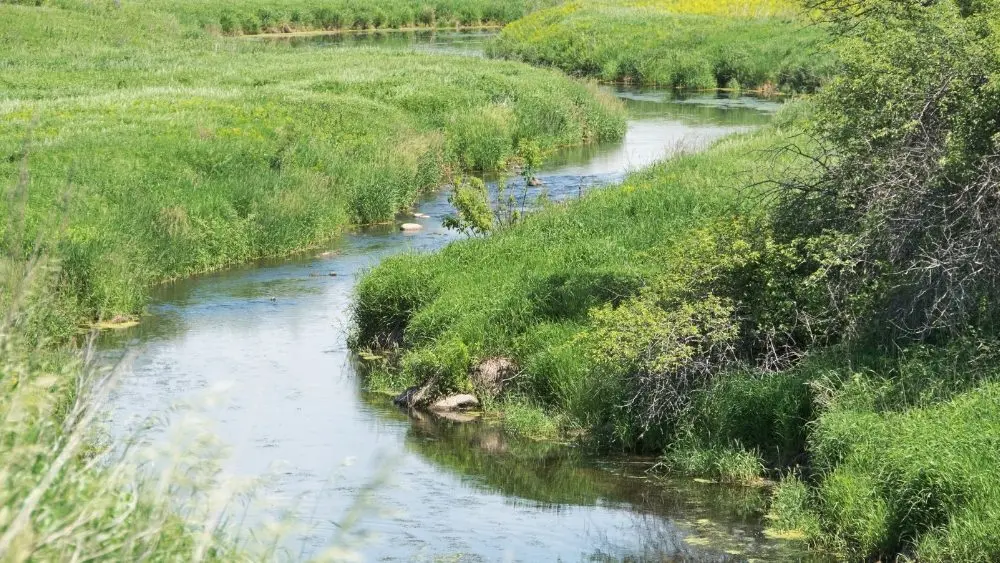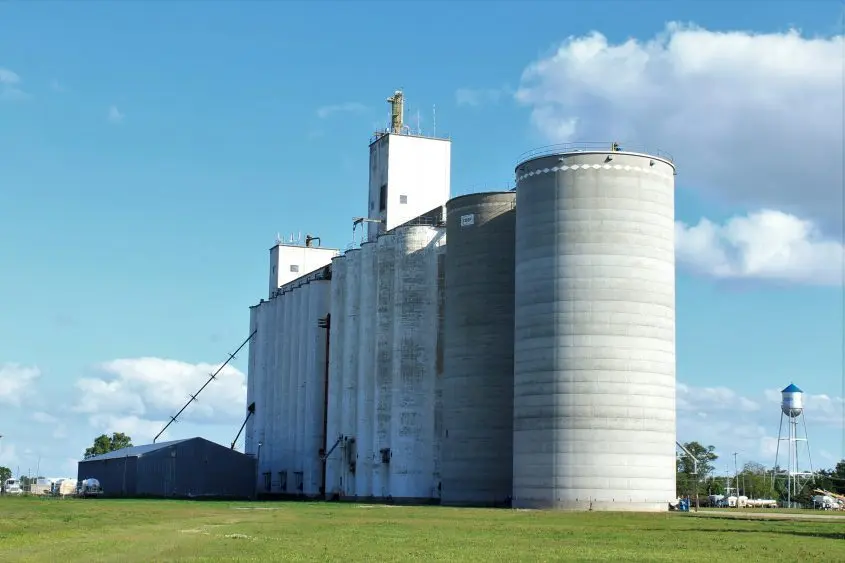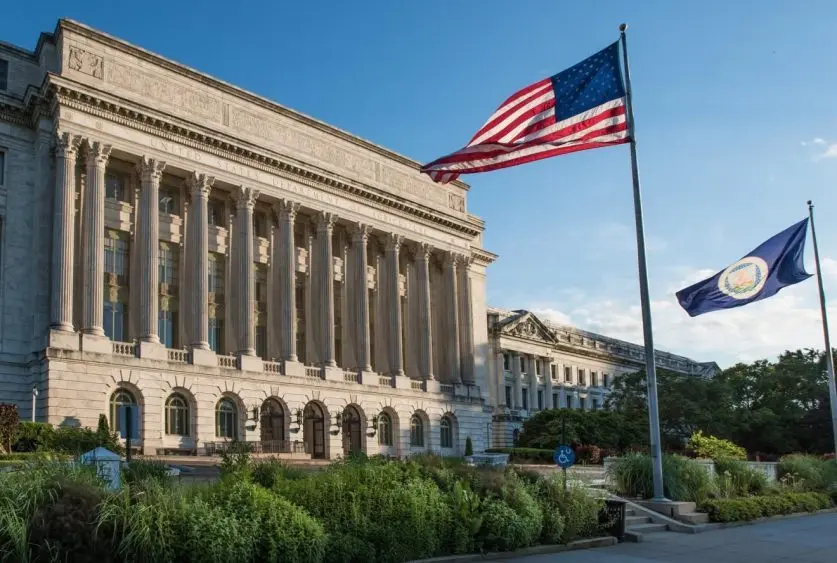WASHINGTON D.C. – U.S. Environmental Protection Agency (EPA) Administrator Lee Zeldin, together with Assistant Secretary of the Army for Civil Works Adam Telle, today announced a proposed rule that would establish a clear, durable, common-sense definition of “waters of the United States” (WOTUS) under the Clean Water Act. The proposal, unveiled at an event today at EPA headquarters in Washington, DC, follows the Supreme Court decision in Sackett and delivers on the Trump Administration’s commitment to protect America’s waters while providing the regulatory certainty needed to support our nation’s farmers who feed and fuel the world and advance EPA’s Powering the Great American Comeback initiative.
The agencies developed this proposed rule using input from multiple sources, including a pre-proposal recommendations docket, information from nine public listening sessions, and consultation comments from states, tribes, and local governments. Key proposed revisions include:
- Defining key terms like “relatively permanent,” “continuous surface connection,” and “tributary” to appropriately delineate the scope of WOTUS consistent with the Clean Water Act and Supreme Court precedent;
- Establishing that jurisdictional tributaries must connect to traditional navigable waters either directly or through other features that provide predictable and consistent flow;
- Reaffirming that wetlands must be indistinguishable from jurisdictional waters through a continuous surface connection, which means that they must touch a jurisdictional water and hold surface water for a requisite duration year after year;
- Strengthening state and tribal decision-making authority by providing clear regulatory guidelines while recognizing their expertise in local land and water resources;
- Preserving and clarifying exclusions for certain ditches, prior converted cropland, and waste treatment systems; Adding a new exclusion for groundwater; and
- Incorporating locally familiar terminology, such as “wet season,” to help determine whether a water body qualifies as WOTUS.
When finalized, the rule will rule cut red tape and provide predictability, consistency, and clarity for American industry, energy producers, the technology sector, farmers, ranchers, developers, businesses, and landowners for permitting under the Clean Water Act.
“When it comes to the definition of ‘waters of the United States,’ EPA has an important responsibility to protect water resources while setting clear and practical rules of the road that accelerate economic growth and opportunity,” said EPA Administrator Zeldin. “Democrat Administrations have weaponized the definition of navigable waters to seize more power from American farmers, landowners, entrepreneurs, and families. We heard from Americans across the country who want clean water and a clear rule. No longer should America’s landowners be forced to spend precious money hiring an attorney or consultant just to tell them whether a Water of the United States is on their property. EPA is delivering on President Trump’s promise to finalize a revised definition for WOTUS that protects the nation’s navigable waters from pollution, advances cooperative federalism by empowering states, and will result in economic growth across the country.”
The definition of WOTUS influences Clean Water Act implementation, including whether farmers, landowners, and American businesses must secure permits before they can pursue projects that might impact surface water quality. Having a durable, consistent, and clear definition of WOTUS is essential to lowering costs for Americans and accelerating economic growth while protecting human health and the environment.
Under the Biden Administration, EPA and the Army’s Amended 2023 definition of WOTUS failed to follow the law and faithfully implement the Supreme Court’s holding in Sackett v. Environmental Protection Agency. Under Administrator Zeldin’s leadership, EPA and the Army Corps took swift action by issuing a memo in March clarifying the limits on federal jurisdiction over adjacent wetlands. This proposed rule is the next step toward establishing a common-sense, durable definition.
The agency’s proposed definition of WOTUS would fully implement the court’s direction by focusing on relatively permanent, standing or continuously flowing bodies of water—such as streams, oceans, rivers, and lakes—and wetlands that are connected and indistinguishable from such waterbodies. It will accelerate economic prosperity by revising, for example, exclusions for certain ditches, prior converted cropland, and waste treatment systems and by adding an exclusion for groundwater. The proposal also takes into account seasonal and geographic variability by including waters that flow uninterrupted throughout the wetter months in the proposed definition of “relatively permanent” waters, based on pre-proposal feedback.
This proposal recognizes that states and tribes know their local land and water resources best. The proposed definition of WOTUS protects water quality by affirming federal protections where appropriate and supporting the role of states and tribes as primary regulators managing their own land and water resources. Cooperative federalism has been a cornerstone of Clean Water Act implementation and the agency’s proposed WOTUS rule at last fulfills that commitment to real, shared federal and state responsibility.
The proposed rule was informed by input from a pre-proposal recommendations docket and consultation comments from states, tribes, and local governments. The agencies also considered information provided through nine listening sessions, including public sessions hosted online and in-person from West Virginia and Utah.
The proposed rule will be published in the Federal Register and open for public comment for 45 days. EPA and the Army will host two hybrid public meetings. Details about commenting either in writing or during a public meeting can be found on EPA’s website. The agencies look forward to reviewing public comment while working to expeditiously develop a final rule.
Numerous lawmakers and ag groups have shared their reaction to the EPA’s news on WOTUS today. House Committee on Agriculture Chairman Glenn “GT” Thompson (PA-15) released the following statement saying “for too long, WOTUS allowed Washington to overreach into the everyday work of farmers, ranchers, and landowners. Today’s action is a strong step in finally delivering a clear, practical definition that ends the needless permitting headaches created by the Biden-era rule. By following through on a promise to rural America, Administrator Zeldin is restoring certainty and trust where it’s long been needed.”
U.S. Senator Kevin Cramer (R-ND), Chair of the Senate Environment and Public Works (EPW) Subcommittee on Transportation and Infrastructure, issued the following statement on today’s announcement saying that “we all know agriculture and energy are North Dakota’s economic foundation. We feed and fuel the world, but these industries really need regulatory stability to attract the type of investment we need to thrive. When President Obama unveiled the WOTUS rule, he kicked off a period of incredible disruption. Instead of focusing on economic growth, our farmers, ranchers, energy producers, and manufacturers were forced to check in with the federal government before they could touch a pothole or a ditch, no matter how ephemeral or transient that water source is. The Biden administration of course continued the overreach, making it clear leftist bureaucrats would never give up their vision of controlling North Dakota and America’s resources. The Supreme Court weighed in, and they were unambiguous when they put in clear parameters around the federal government’s authority. The Trump administration’s rule simply ends the whiplash and does exactly what the law and the Supreme Court tasked it to do—protect our water while respecting our economy, states’ rights, and most importantly, the rights of landowners. Thank you to President Trump, Administrator Zeldin, Assistant Administrator Kramer, and the state of North Dakota for fighting back against the overreach and serving as North Dakota’s true water protectors.”
Groups such as the National Council of Farmer Cooperatives, National Cattlemen’s Beef Association and the National Association of State Departments of Agriculture have issued statements as well.
“The National Council of Farmer Cooperatives welcomes today’s announcement by EPA Administrator Lee Zeldin that the agency has published a revised Waters of the United States (WOTUS) rule to provide farmers, landowners, and rural communities with the clarity they have long needed,” according to NCFC President and CEO Duane Simpson. “A definition that follows the law, reflects the Supreme Court’s ruling in Sackett, and delivers a straightforward, durable framework is essential for producers who must navigate these rules every day. NCFC supports this effort to streamline permitting, reduce unnecessary red tape, and ensure that water regulations are both clear and workable for stakeholders, including agriculture. Farmer co-ops and their members are committed to protecting our natural resources, and today’s action is a meaningful step toward giving them the certainty required to keep doing just that while continuing to power rural economies.”
“Waters of the U.S. has been a longstanding and frustrating issue for family farmers and ranchers. Every few years, the definition of a ‘water of the U.S.’ has changed. Often, this meant that small water features like prairie potholes or dry ditches suddenly fell under federal regulation,” said NCBA President and Nebraska cattleman Buck Wehrbein. “NCBA has spent years fighting to protect cattle producers from excessive red tape. We went to the EPA, advocated on Capitol Hill, and even took this issue all the way up to the Supreme Court to protect our members from federal overreach. We appreciate the EPA finally fixing previous WOTUS rules and supporting America’s family farmers and ranchers.”
“Today’s WOTUS announcement finally acknowledges that the federal government should work to protect lakes, rivers and oceans, rather than regulating ditches and ponds on family farms and ranches,” said NCBA Chief Counsel Mary-Thomas Hart. “NCBA is pleased to see the EPA stand up for cattle producers, and we look forward to providing input on this proposed rule.”“NASDA appreciates EPA and Army Corps listening to input from state departments of agriculture and other stakeholders regarding problems with prior WOTUS rulemakings. NASDA is pleased that our federal colleagues will work cooperatively with state co-regulators to ensure the goals of the Clean Water Act are met while minimizing unjustified interference with agricultural and other activities that feed, clothe, and house Americans and drive our nations’ economy,” NASDA CEO Ted McKinney said. “NASDA is excited to properly re-engage with EPA and Army Corps under cooperative federalism to ensure our water resources are protected and farmers have the information and resources they need to make the best decisions about how to manage their land.”





